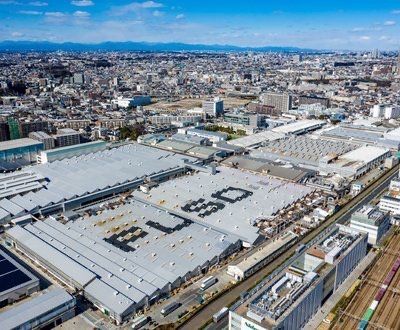Operations at Mitsubishi Fuso Truck Europe S.A. plant located at Tramagal, Portugal, will become CO²-neutral by 2022. Tramagal is the plant where Fuso eCanter trucks destined for Australia are manufactured.
Other plants in Japan will follow to achieve CO² -neutrality by 2039 at the latest. MFTBC’s Kawasaki and Nakatsu plants have reduced CO2 emissions by 17 per cent since 2015.
In these past few years, communities everywhere have been rapidly accelerating their efforts toward decarbonization and carbon neutrality.
The Japanese government has stated that it would “aim to become carbon neutral [in the automotive industry,] including the entire supply chain” in their action plan for the Green Growth Strategy, which was approved by the Japanese cabinet in June 2021.
Amidst these developments, MFTBC follows the Daimler Trucks & Buses target to offer only new vehicles that are CO² -neutral in driving operations (“tank-to-wheel”) in Europe, Japan and North America by 2039.
Daimler Truck AG aims to accomplish this goal by electrifying its vehicles and is following a dual-track strategy to achieve this goal.
As early as 2022, Daimler Trucks and Buses wants its vehicle portfolio to include series-produced vehicles with battery-powered drive systems in the main sales regions of Europe, the United States and Japan.
Beginning in 2027, the company wants to supplement its vehicle portfolio by adding series-produced hydrogen-powered fuel cell vehicles. The ultimate goal is to achieve CO² -neutral transport on the road by 2050.
In addition to these targets for its products, Daimler Truck AG is also committed to sustainability in other aspects of the value chain, including the production process. All European Daimler Trucks & Buses plants will have a CO² -neutral energy supply by 2022.




